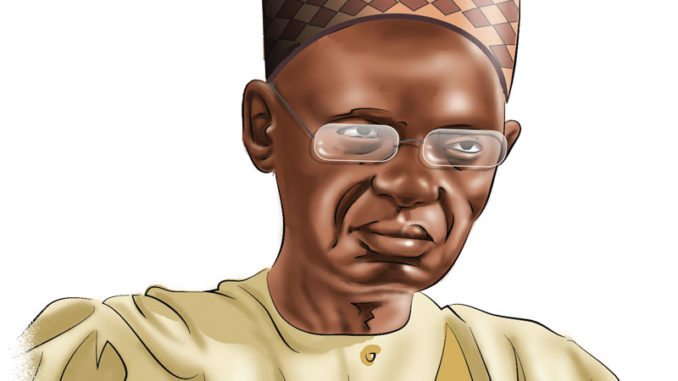
The death of Alhaji Shehu Usman Aliyu Shagari, the Second Republic President, on Friday the 28th of December, 2018, after a brief illness, at the National Hospital, Abuja, has justifiably thrown the country into mourning over the loss of one of its uncommon patriots. Shagari was easily a statesman, teacher, affable, humble, God-fearing and a leader with deep and sincere commitment to a better life for the ordinary Nigerians.
Although the former President Shagari died at a ripe age of 93, his exit appropriately elicited a sense of loss across a wide spectrum of Nigerians. His presidency of the country, between October 1, 1979 to December 31, 1983 has turned out to be a nostalgic period for the country when compared with the present times, in terms of peace and steady, albeit slow, progress for Nigeria.
It is not surprising that since the announcement of his death, the Sokoto country home of the nonagenarian and elder statesman has been a beehive of activities of sympathizers commiserating with the family, even as notable Nigerians praised his noble life. President, Muhammadu Buhari described Shagari’s death as the departure of a patriot whose life of service and humility was widely acknowledged. Former governor of Delta State, Chief James Ibori described him as a gentlemanly President who showed that power, no matter how mighty, could be used moderately. Many others have described him as an epitome of integrity and commitment.
Born on February 25, 1925, Shagari attended Yabo Elementary School between 1931 and 1935. Between 1936 and 1940, he went to Sokoto Middle School, and then from 1941 to 1944 he attended Kaduna College. Between 1944 and 1952, Shehu Shagari, attended Teachers Training College in Zaria, Kaduna. From 1953-1958, Shagari worked as a science teacher in Sokoto Province.
Alhaji Shagari subsequently became interested in politics, and in 1954, got elected to the Federal House of Representatives. Thereafter, he held several appointive posts in various administrations since the country’s Independence in 1960. In 1971, Alhaji Shagari was appointed Federal Commissioner for Economic Development by the Gen. Yakubu Gowon’s military administration. In the same year, Ahmadu Bello University Zaria, conferred upon him the degree of Doctor of Law, in recognition of his public service. After the military coup of 1975, he returned to Sokoto and a year later, was appointed by the Sokoto State Government as chairman of the Sokoto Urban Development Board shortly before the Federal Government appointed him Chairman of Peugeot Automobile Limited.
As Shagari moved into higher political pedestal, he was wooed by the defunct National Party of Nigeria (NPN) to be its presidential candidate, largely because of his wide acceptability. He considered himself as a “reluctant candidate”, but eventually became the first Executive President of Nigeria in 1979 in a keenly contested election with Chief Obafemi Awolowo of the defunct Unity Party of Nigeria (UPN) following a return from military to civil rule spearheaded by the General Olusegun Obasanjo military regime.
He was re-elected in 1983 for a second term which was however cut short by a coup led by Maj. Gen. Muhammadu Buhari. He was to spend about a year under house arrest, later released after being cleared of corruption allegations in 1986.
In the four years that he presided over Nigeria’s affairs, Shagari was acknowledged for embracing politics without bitterness. He had lofty ideas for the average citizen, but many of his advisers and cabinet members were insensitive, and prevented his ideas from being executed. For this, he was regarded in some quarters as a weak president. Still he ensured the construction of federal low cost houses presently being enjoyed by thousands of Nigerians across the country.
A heavy smoker, Shagari summoned the will to quit the habit while in detention, a decision that greatly improved his health. Overall, he was a shining example of the humble character required of a leader. Shagari was undoubtedly a servant-leader who impacted meaningfully in the country’s developing democracy. He was one of the very few politicians in Nigeria who demonstrated an unprecedented selflessness in their service to their country.
Shagari’s death has certainly created a vacuum in the nation’s political history that will be difficult to fill. But his selfless service to Nigeria, his character and all that he represents are lessons worthy of emulation by current leaders.
END

Be the first to comment